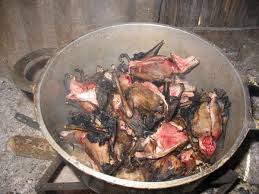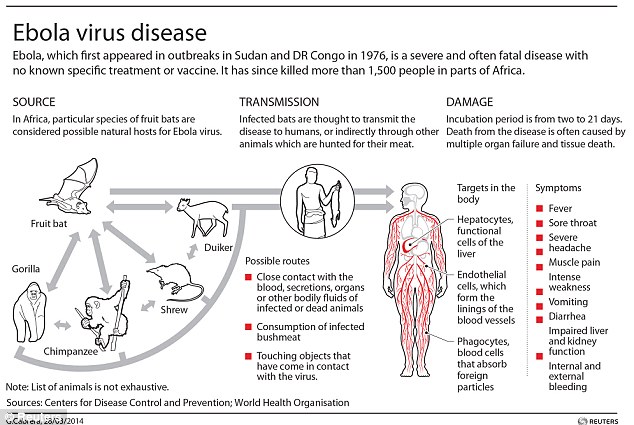Did you ever travel to a different country and wanted a taste of home? In the case of some Africans, it is bushmeat – the native ingredients from Africa that can harbor the Ebola virus are being smuggled into the United States to be consumed by people who want a taste of home.

A favorite stew being made from Fruitbats – one of the common carriers of the deadly virus
While many worried about the US missionaries coming to the US with Ebola, that has proven to be a non issue. The more important concern is either the mildly symptomatic, and contagious, person that is sitting next to you on the plane, that doesn’t know they have Ebola. But now there is a new threat- the smuggled African native meats, bushmeat, that are found within a few miles from Yankee Stadium.
It is illegal to bring meat from Africa to the United States, and in the last four years over 69,000 packages of bushmeat have been confiscated by border agents. How much of this has crossed into the border is impossible to guess.
The fruitbat is commonly consumed, and believed to be the start of the current Ebola outbreak. This animal is infected by Ebola, but is not affected by it- meaning the virus lives in the animal without causing it harm, but when the meat is consumed by humans it causes infection.
For Africans sourcing meat from the wild is essential for health. Loss of wildlife meats would increase childhood malnutrition by a third. Domesticated animals are expensive, and unaccessible, and bushmeat originally was an issue because of consumption of endangered animals. What is needed in Africa are solutions, such as the use of aquafarms to provide better and cheaper sources of nutrition.
Besides Ebola virus, bushmeat can also contain Monkey Pox (a small pox variant), and Severe Acute Respiratory Syndrome (SARS) and perhaps may have been the original source of HIV, as well as other viruses.
Irradiation of the meats, complete cooking, can eliminate the virus – however, most illegal meats are not irradiated, and most of the meats that have been confiscated have not been processed enough to eliminate deadly pathogens such as Ebola.
Thankfully the number of people purchasing bushmeats has decreased, according to some reports. But this illegal trade has to stop. Perhaps the best way is to feed a hungry planet by adding aquaculture and better nutrition to the local area, and continue to educate those who come from Africa about the dangers of native meats. It will not only prevent outbreaks of deadly virus in Africa, but prevent those from entering the United States.

